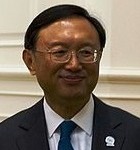The 18th annual talks between China and the US took place in Kunming, Yunnan Province on July 30 and 31. This was the first of such talks attended by President Xi Jinping and Prime Minister Li Keqiang since they took office this year.
Uzra Zeya, acting Secretary of State for Democracy, Human Rights and Labor emphasised the mistreatment targeted at family members of jailed Nobel Peace Price winner Liu Xiaobo, and blind lawyer Chen Guangchen, the Chinese civil rights activist who worked on human rights issues in rural areas of China and who fled to the US after being placed under house arrest and beaten. Zeya also referred to the increasingly strict controls aimed at Tibetans and Uighurs in the western regions of China. These issues were also brought up in the US-China Strategic and Economic Dialogue that took place in Washington on July 10 and 11.
Responding to these assertions, the Chinese authorities said that its Tibetan and Uighur minorities are happy and enjoy freedom. They retaliated by criticising the US and urged Washington to re-examine its own record. “China has made important progress on human rights. People in various regions in China including Xinjiang and Tibet are enjoying happier lives and they are enjoying unprecedented freedoms. We hope the United States will improve its own human rights situation on the basis of mutual respect and non-intervention in each other’s internal affairs”, said State Councillor Yang Jiechi.
The Chinese government has repeatedly identified the Dalai Lama as a “splittist” and denied curbing Tibetan rights, and says it ended serfdom and made the region more prosperous.
There has been some scepticism over the outcomes of the talks. “We’ve continued to see a deterioration of the overall human rights situation in China,” said Zeya. Her evaluation of the talks remains unchanged from that of her predecessor after last year’s talks. However, Li Fangping, a human rights lawyer, recently said that the talks are still meaningful. “It achieves little in the short term, but from a macro and long-term perspective, there are great benefits. It helps make human rights public and mainstream, and more people can be aware of the issues through digital media”, he said.








 Print
Print Email
Email